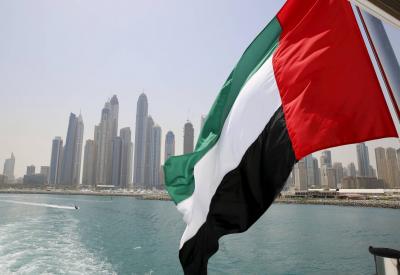The United Arab Emirates has ranked first in the Arab world in the Global Labor Index 2024, issued by the global consulting firm "Whitechild," coinciding with the World Economic Forum in Davos, Switzerland. The report indicated that the UAE recorded the highest rate of labor market flexibility in the Arab region, followed by Saudi Arabia, in pursuit of diversifying its economy and enhancing the skills of its workforce.
The report mentioned that European countries topped the list of the most flexible labor markets, with Switzerland leading the way, along with Singapore being the only country outside Europe among the top ranks.
The report highlighted major challenges facing labor markets, linked to the risks of global warming and the need to transition towards a sustainable future. It showed how countries are responding to these transformations by adjusting legislation and policy frameworks to enhance sustainability aspects, primarily focusing on the need to build robust and inclusive labor markets.
It also revealed that achieving a balance between environmental standards and labor market dynamics requires policymakers to adopt a comprehensive methodology that integrates climate policies with labor policies to create an environmentally-friendly economy through a seamless and fair process for all.
The Global Labor Flexibility Index 2024 report indicates that the green transition necessitates a set of policy adjustments related to labor markets, involving changes in the economic structure, which calls for targeted policies and activating the role of institutions to enhance sustainability in labor markets. Institutions play a pivotal role in formulating well-considered policies, thereby improving labor market flexibility and environmental performance.
Fadi Farra, managing partner at Whitechild, stated, "We are pleased to release the Global Labor Flexibility Index 2024 report, in line with our commitment to enriching knowledge and studies related to sustainability. We based the report on extensive and deep research to identify the most flexible countries in terms of labor markets, while highlighting the crucial role of flexible labor markets in establishing the necessary environmental performance standards to build a sustainable future capable of coping with changes."
Riad Safadi, chief economist at Whitechild, noted: "The Global Labor Flexibility Index 2024 report reflects the necessity of establishing targeted policies and building effective institutions to accelerate the green transition in labor markets, especially amid the structural changes the global economy is undergoing. The report's methodology involves taking proactive steps to achieve the transformation with the best possible outcomes, relying on a set of metrics that include monitoring market performance, benchmarking outputs, and deriving lessons learned from current policies and institutions in each of the 136 countries covered by the report."




